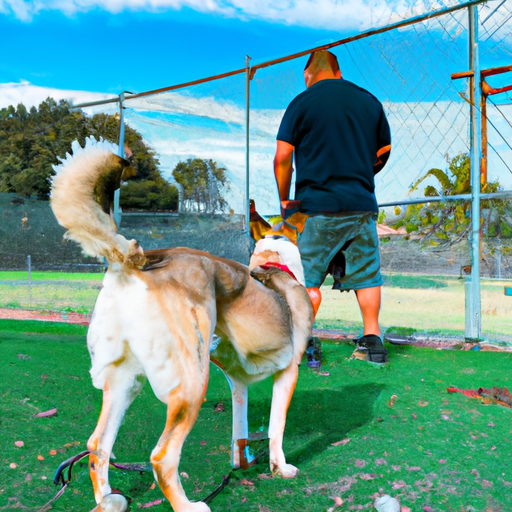Aggressive dogs are often misunderstood creatures. Their aggression may stem from a variety of reasons — fear, territorial behavior, or past trauma — and it is our responsibility as caregivers to help them navigate their emotions. In this comprehensive guide, we will explore the best places to take aggressive dogs, focusing on environments that promote their wellbeing and encourage positive behavior.
Table of Contents
- Understanding Aggressive Behavior in Dogs
- Dog Training Centers
- Animal Behaviorists and Veterinary Behaviorists
- Dog-Friendly Parks and Outdoor Spaces
- Dog Daycare Facilities
- Frequently Asked Questions
Understanding Aggressive Behavior in Dogs
Before we dive into the locations, it’s essential to understand aggressive behavior in dogs. Aggression can manifest as growling, baring teeth, snapping, and biting. It might be directed towards people, other dogs, or objects. This behavior could be a result of many factors like fear, frustration, pain, or territorial instincts. Understanding the root cause of your dog’s aggression is a crucial step towards managing it effectively.
Here are some key takeaways:
- It’s crucial to consult a professional if your dog shows aggressive behavior.
- Training centers, behaviorists, and dog-friendly environments can help manage aggression.
- Regular exercise, mental stimulation, and a balanced diet are integral parts of managing aggression.
Dog Training Centers
Dog training centers are excellent places to take aggressive dogs. They provide structured environments where dogs can learn obedience and socialization skills under the guidance of professional trainers. Centers like Sit Means Sit offer specialized programs for aggressive dogs. These programs focus on behavior modification techniques that help the dog learn to control its aggression.
While searching for a good dog training center, you might want to consider these points:
- Check the trainer’s credentials
- Confirm if they have experience dealing with aggressive dogs.
- Ensure that their methods align with positive reinforcement techniques.
Animal Behaviorists and Veterinary Behaviorists
If your dog’s aggressive behavior persists, considering professional help from an animal behaviorist or a veterinary behaviorist is a wise step. These professionals have in-depth knowledge of animal behavior and can diagnose any underlying health issues contributing to aggression.
You can find more information about the role of behaviorists and how they can help your dog at American Veterinary Society of Animal Behavior. Remember, it’s always better to seek help sooner rather than later when dealing with aggressive behavior in dogs.
Dog-Friendly Parks and Outdoor Spaces
Contrary to popular belief, aggressive dogs need socialization too. Dog-friendly parks and outdoor spaces help them interact with other dogs and humans in a controlled manner. However, always ensure your dog is on a leash and monitor their behavior closely.
For more information on how to manage your dog’s behavior in public spaces, check out this article on One Top Dog.
Dog Daycare Facilities
Dog daycare facilities can also be beneficial if they have staff experienced in handling aggressive dogs. These facilities provide an opportunity for dogs to interact and play with others under close supervision. But, it’s essential to introduce your dog gradually and ensure they feel comfortable.
Remember to check out this guide on selecting the right dog daycare from One Top Dog.
Frequently Asked Questions
1. What should I do if my dog is aggressive?
If your dog shows aggressive behavior, consult with a professional like a trainer, behaviorist, or a veterinarian. They can help identify the root cause and devise a behavior modification plan.
2. Can aggression in dogs be cured?
While aggression can’t be ‘cured’ as such, it can be managed effectively. With professional help, behavior modification, and a supportive environment, aggressive dogs can lead happy and healthy lives.
3. Are certain breeds more prone to aggression?
While breed can play a role in a dog’s behavior, it’s not the only determining factor. Environment, upbringing, and individual personality also significantly influence a dog’s behavior.
Remember that every dog, like every human, is unique. Their behavior is a combination of their genetic makeup and their experiences. Check this article on One Top Dog to learn more about dog breeds and behavior.
Caring for an aggressive dog can be challenging, but with patience, understanding, and professional help, you can help your dog lead a balanced life. The journey isn’t easy, but remember, the rewards are worth the effort.



